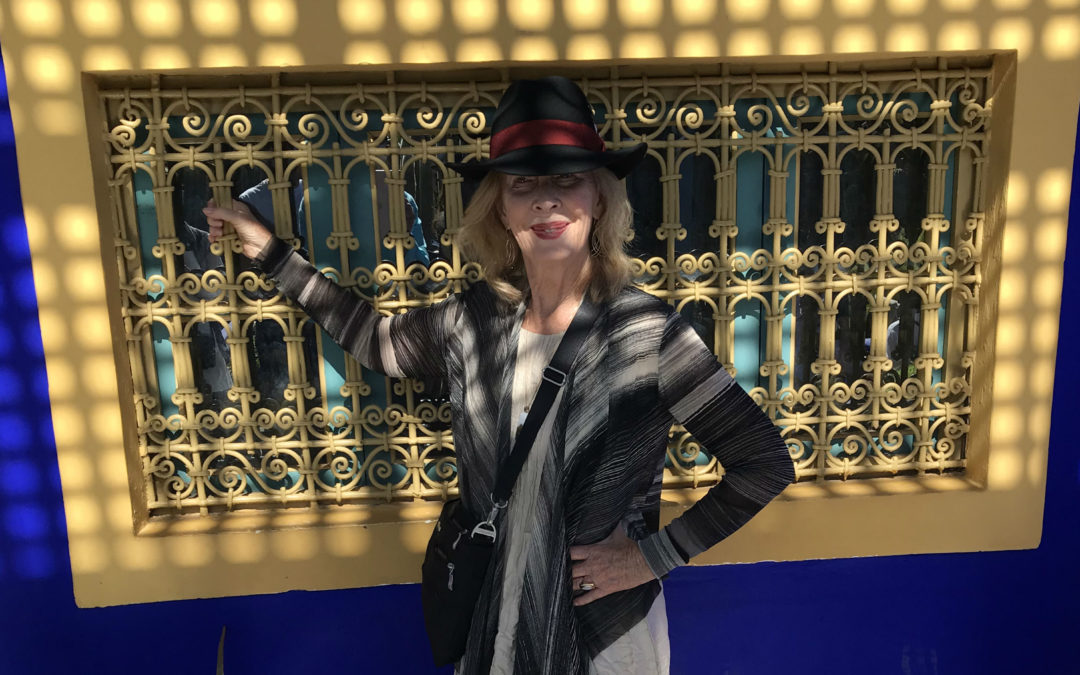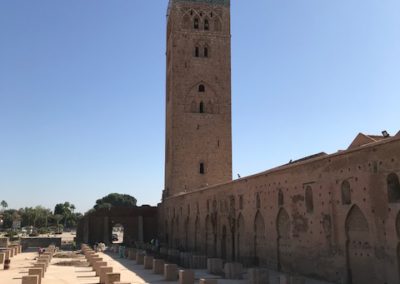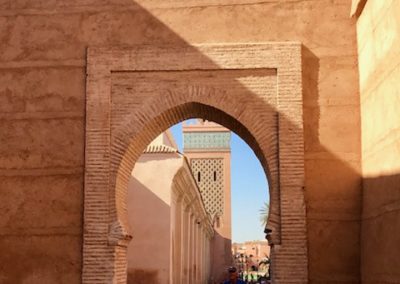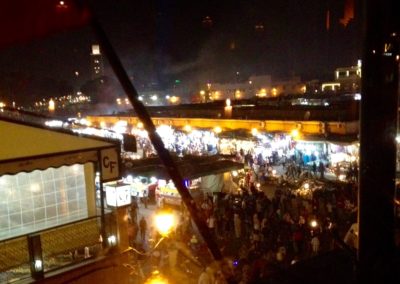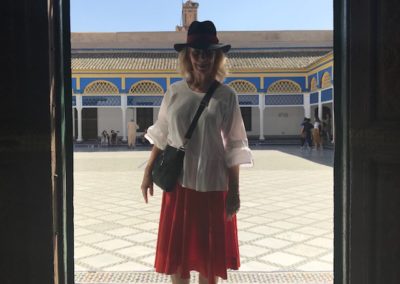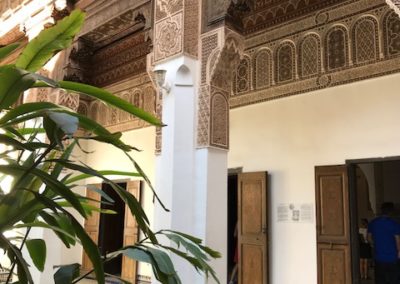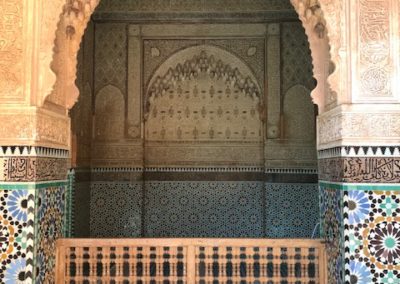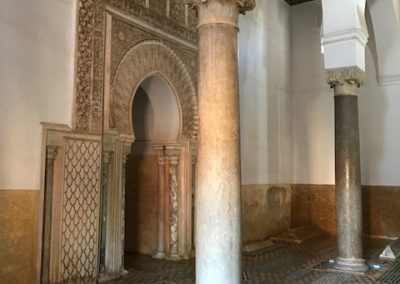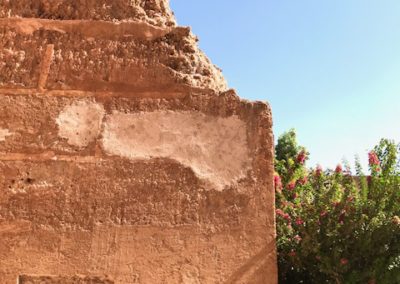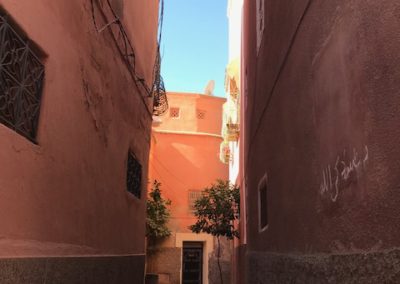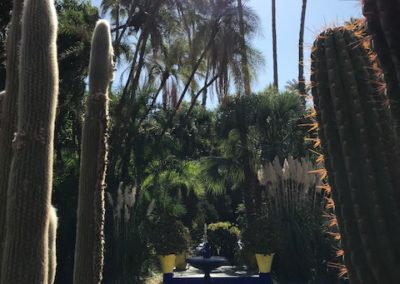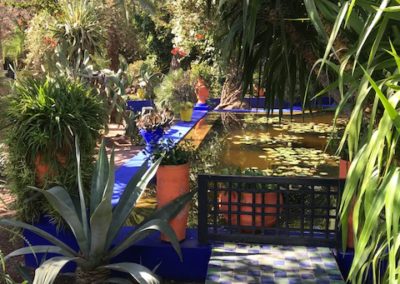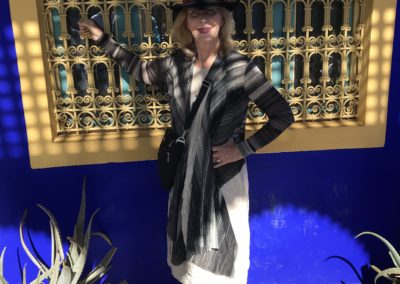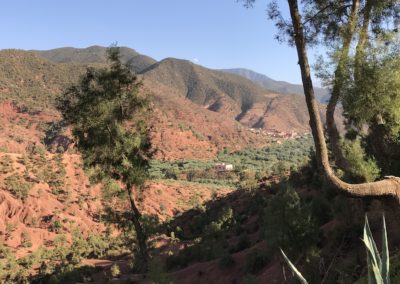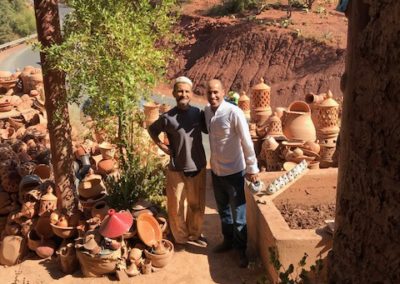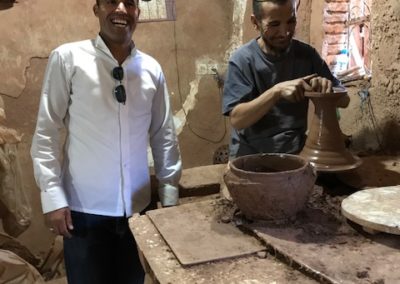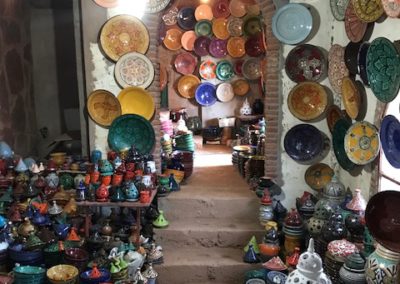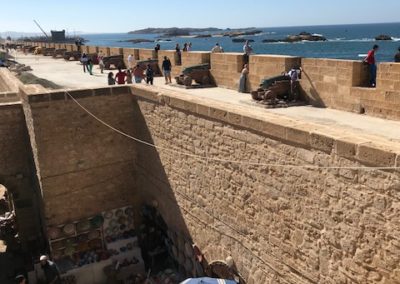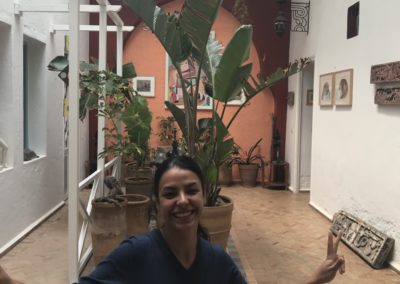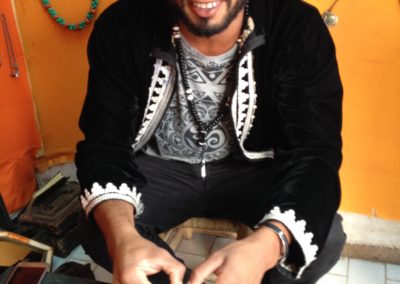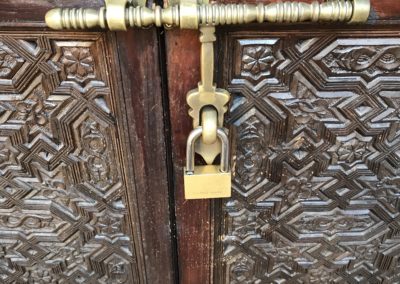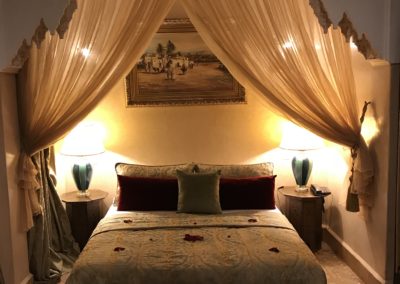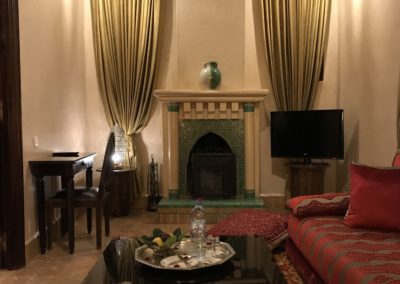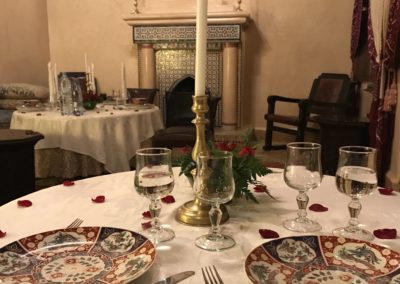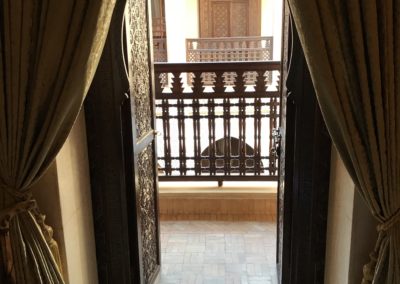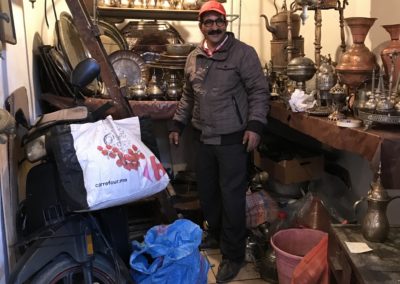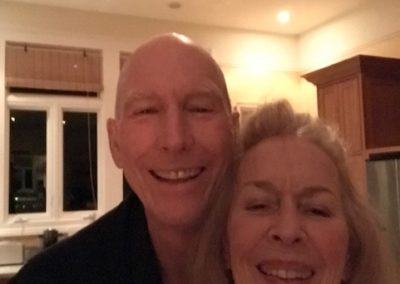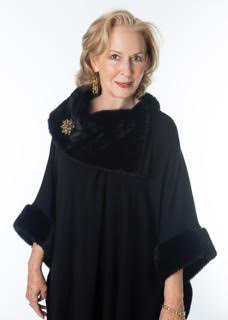“Traveling, it leaves you speechless, then turns you into a story teller.”
Ibn Battuta, Moroccan Explorer
Ah, Morocco, crossroads between Asia, Europe and Africa, home to Berbers, Arabs, Andalusians, North Africans, and Occidental Europeans. It is said you are like a tree with your roots in Africa and your leaves in the air of Europe.
Arabic spills from your lips as does Berber in remote villages; French is universal. Muslim, Jewish, and Christian faiths co-exist with a degree of acceptance, respect, and right of privacy that I find remarkable given America’s current cultural and political wars.
Ah, Marrakech, city of mystery. I haven’t wanted to pierce your mystery; I’ve fought against the impulse with all my might. But now, you are slipping away like a lover on the lam. The jinx is up. You are growing dimmer with each passing day, and unless I guard against forgetting, I will lose you forever.
The guttural call to prayer from the muezzin in the minaret atop the mosque crackles over the rooftops. In an elegantly 2nd story appointed suite of 18th century Riad Kniza, Sailor Boy and I rise to take breakfast on the garden terrace in a white tent draped with gauzy curtains, sheltering the sun and billowing in the breeze. A low table is set with linen, exquisite china and sprinkled with rose petals. An upholstered banquette tossed with silk pillows beckons. Our server is the model of propriety and good cheer. There isn’t enough he can do to see to our needs. He brings us a delicious breakfast of Beghrir, the tender pancakes of Morocco, fried eggs, fresh orange juice, bread, butter, preserves, and coffee.
When we arrived at the beautiful Marrakech airport and walked under a soaring dome of glass that resembles a spider web, Monsieur Mouni greeted and ushered us into a waiting van for quick delivery to the medina. Through high gates on the edge of the square, the van parked and we walked into the narrow labyrinth of cobbled streets bordered by high pink stucco walls where vendors, motorcycles, carts pulled by donkeys, and pedestrians seamlessly jockeyed for passage. The sensation was one of dizziness. Monsieur Mouni never left my elbow. I quickly learned: Moroccans are helpful to a fault. I also learned they are ready to share a joke or a laugh. Monsieur Mouni’s eyes danced with humor and keen perception. I felt he was measuring our courage and intuiting our navigational skills while steering us to safety.
Here is lure of shadow and light, of seen and unseen, of doors in high walls that are closed and when opened offer only a hint of the interior. When admitted into Riad Kniza, the noise of the street dies. The entry is barely enough for one person. The cultural norm is one of non-ostentatiousness. Civility is prized.
Inside the riad, a former palace, there is harmony. Down a marble hall past other closed doors and stairs, the space opens into a courtyard that opens to the sky. Trees, ferns, and plants offer a bower of coolness and a burbling fountain scattered with rose petals rests in the center of the courtyard. Above our heads, carved wooden balconies line each floor. Marble tiles are underfoot and delicate zellij mosaic tiles decorate the walls.
Monsieur Mouni invites us into a salon lined with satin settees. We sit and are treated to our first ritual of mint tea delivered by a tall, young, dark-haired server. He brings the tea on a silver tray, and, from a great height, expertly pours a thin stream of tea into multi-colored glasses, its herbaceous fragrance wafting into the air. Monsieur explains every detail of our ten day stay—the guide, who will take us through the city to the monuments, souks and gardens; another guide, who will accompany us to the Atlas Mountains where the air is crystal clear and creeks flow from green peaks; and yet another guide who will drive us to Essouria, a seaside town where we will spend a few nights and wander along the ramparts of the old trading port.
Time is of no concern. Monsieur is entirely at our disposal. There is a feeling of intimacy I often do not feel even from friends whose lives are scheduled and regulated to a degree that makes contact hurried and superficial. Back in the States it seems as if everyone is in a rush, myself included. He laughs at Sailor Boy’s comments; he and I share an affinity I did not expect. With me, he looks deeply into my eyes, and when he departs, imploring us to call him with any question, he takes my hand and bows goodbye.
Ah, Morocco, you dazzle me with ancient charms preserved by legions of artisans. In the souks, my eyes fall on exquisite abstract and geometric motifs of infinite variety. There is hand-carved wood, forged metal, handwoven and died textiles, bold silver and semi-precious stone jewelry, tooled leather and glazed ceramics in blue, gold, green, red.
On the outskirts of the desert, caravans move from town to town, selling supplies, goods, and food. Back in Marrakech, Jardin Majorelle’s oasis calls and in the hammam, the Turkish bath washes away cares. In stalls lining the streets, merchants stand at the ready to bag spices from open barrels of cardamom, cumin, turmeric, nutmeg, cinnamon, ginger, pepper and coriander into little brown paper bags. A farmer sits on a tarp beside a mound of fresh eggs. A butcher cries out between hanging carcasses of lamb and goat, a knife flashing above his head. Fresh vegetables spill from wooden crates.
In the medina, smoke curls above charcoal fires and hovers in the air. One never goes hungry. Tagines of couscous, vegetables and chicken or lamb send out enticing aromas. Musicians play pipes, drums and stringed instruments; their music mingles with the voices of the people strolling by. The night sky is black velvet and lights twinkle from makeshift tents.
Ah, Morocco, you are the queen of our three months of travel. It is said by our guide, Amed Moutaqui, that you are easy to come to—by sea or by air, a mere ten hours, whatever it takes—but once you are here, it is hard to leave. I couldn’t agree more. I see how your youth pushes into the 21st century, carrying cell phones and wearing fashionable western apparel. They talk of wanting to come to the States and I caution them. Open your eyes; look around; seek your fortune here. Yet, I remember how I yearned to travel to the other side of the earth and then when I did, how I yearned for home. I tell them their age-old customs, dignity and wisdom are irreplaceable. I tell them I will return, and when I do I’ll stay longer, much longer.

